The Susan G. Komen Foundation has trademarked the tag line "For the Cure" as their main purpose for existence. Their advertisements include phrases like, "Keeping a promise," (This is because Komen founder, Nancy Brinker, promised her dying sister, Susan G. Komen, that she would find a cure), "ending breast cancer," and of course, the ever-present, "race for a cure."
When you ask the average citizen om the street wht does Komen do, they will typically respond with something along the lines of "research for a cure for breast cancer." after all, that's how they promote themselves. (By the way, I will be interviewing people in the month of October about their thoughts on what Komen does.)
BUT ... that's not what Komen is about.
When I asked the San Francisco affiliate of Komen what their purpose was, the stated answer was, "We are a fund-raising organization."
That's it.
They raise money.
They keep 75% of the money they raise in the local community, providing grants to local organizations that typically provide "awareness, education and support." The remaining 25% goes to the national headquarters in Dallas.
National headquarters is responsible for research distribution. They award grants "for the cure." You would think that all of the money going to the national headquarters would go for that cause, but it doesn't.
Only 18% of it does.
And of that, only 15% goes into metastatic research ... research against the only breast cancer that kills.
Let's look at the numbers.
Let's say yesterday's San Francisco "Race for the Cure" raised $100,000. $75,000 would stay in the San Francisco Bay area while $25,000 would go to Dallas. Of that $25,000, only $4,500 (18%) would goe into research. Of that $4,500, only $675 (15%) would go into metastatic research.
Yet, the common person participating in the "Race for the Cure," thinks ALL the money raised is going into research!
I have no problems with Komen being a support organization. I know many local affiliates are providing necessary aid to people who are in desperate need of help. More power to them.
However, I struggle with the manipulation of heart strings in order to pull on purse strings that misdirect funds. Too many believe that Komen takes their hard earned dollars and truly puts them "for a cure." Please ... Komen ... change your tag line to something more appropriate. Perhaps, "Komen. Support when you need it" is the direction you should choose.
You can go to my main page, "I Want More Than A Pink Ribbon" to link to sites that are actually funding research. Make your dollars count.
Another post for another day ... people are angry at Komen for making breast cancer the "shopping disease." They are also angry that Komen continues to tout, "Early detection saves lives." If this were true, then no one with an early stage diagnosis would ever become metastatic. While the actual percentage of metastatic recurrence is unknown, it is generally accepted to be no less than 20% and is possibly as high as 30%. Early detection saves SOME lives, but it's not the end-all-cure-all that Komen has made it out to be. Komen refuses to back down from this mantra and fails to adequately educate women (and men) on the realities of metastatic breast cancer.
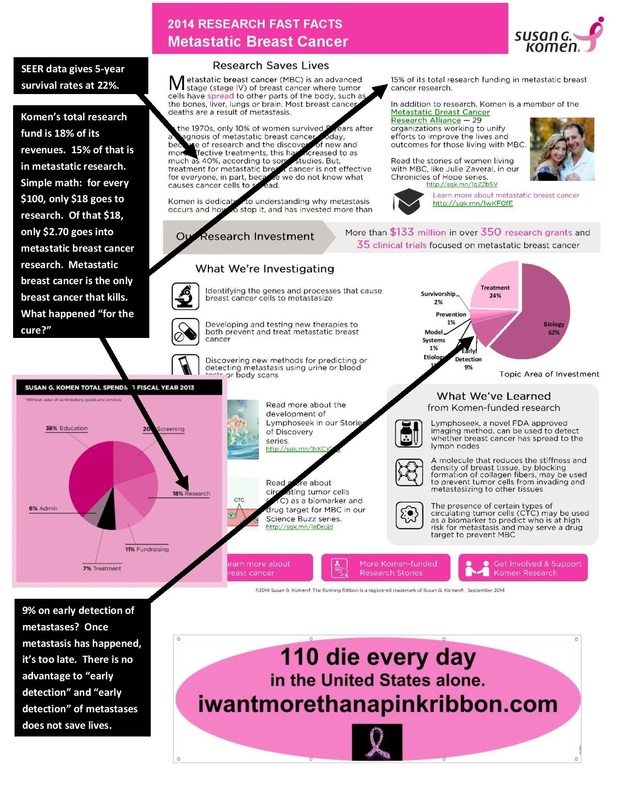
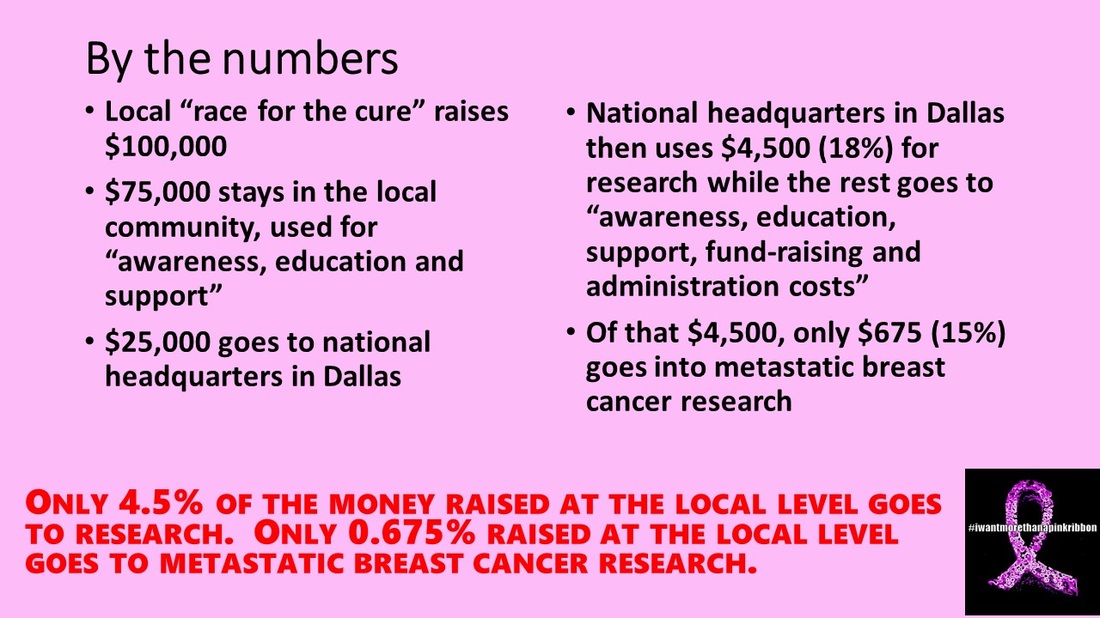
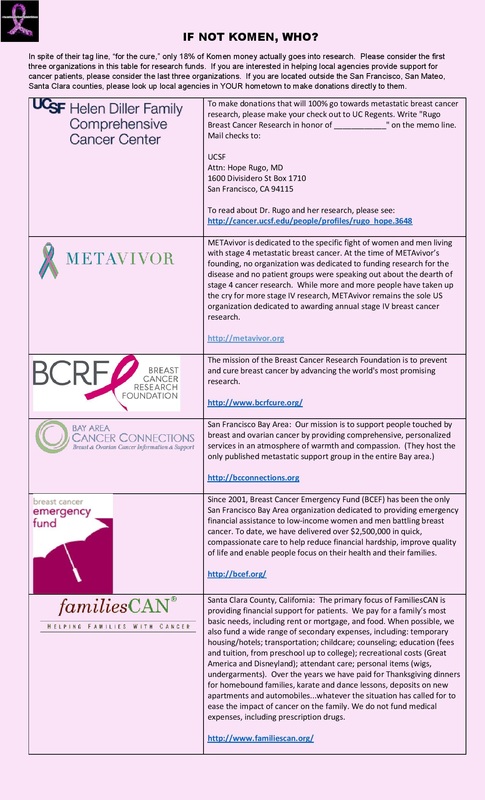
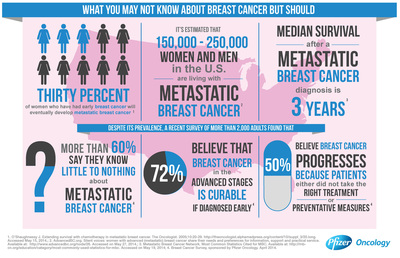
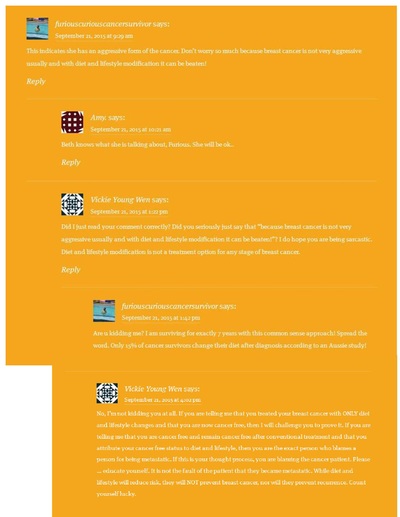
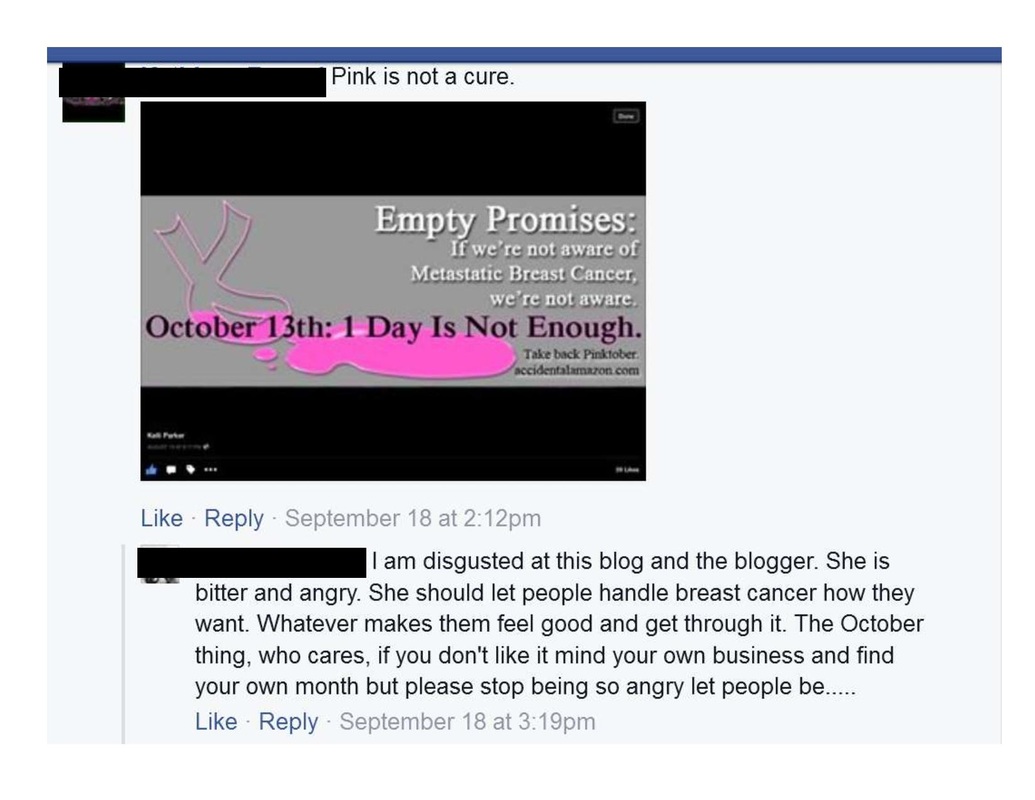
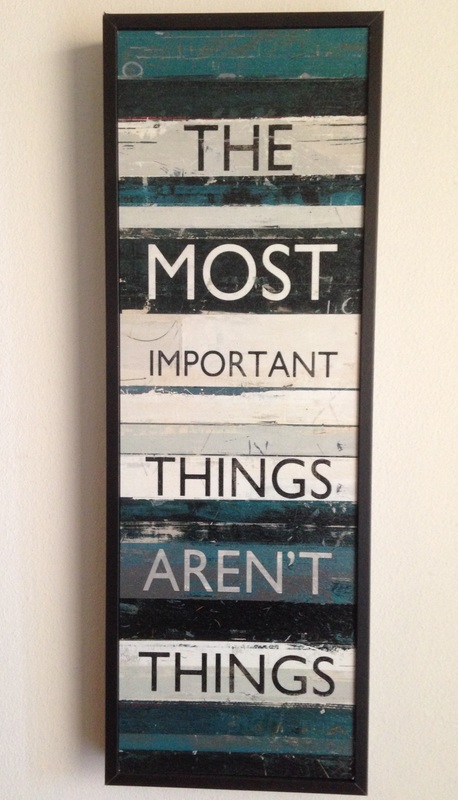
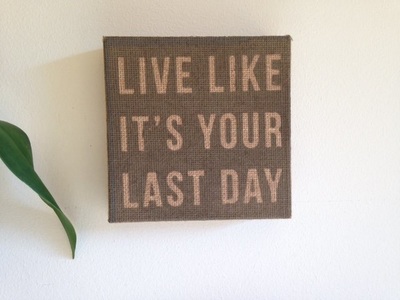
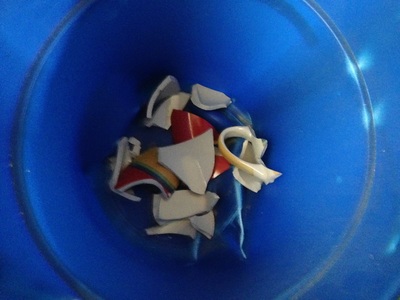
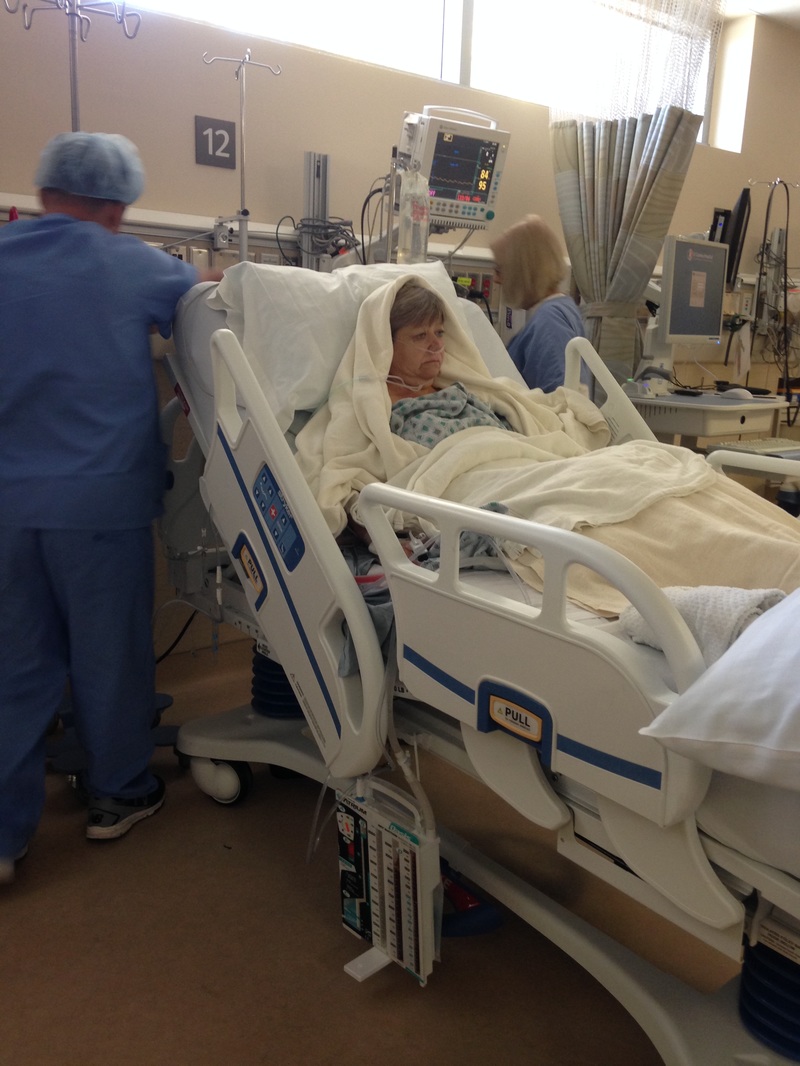
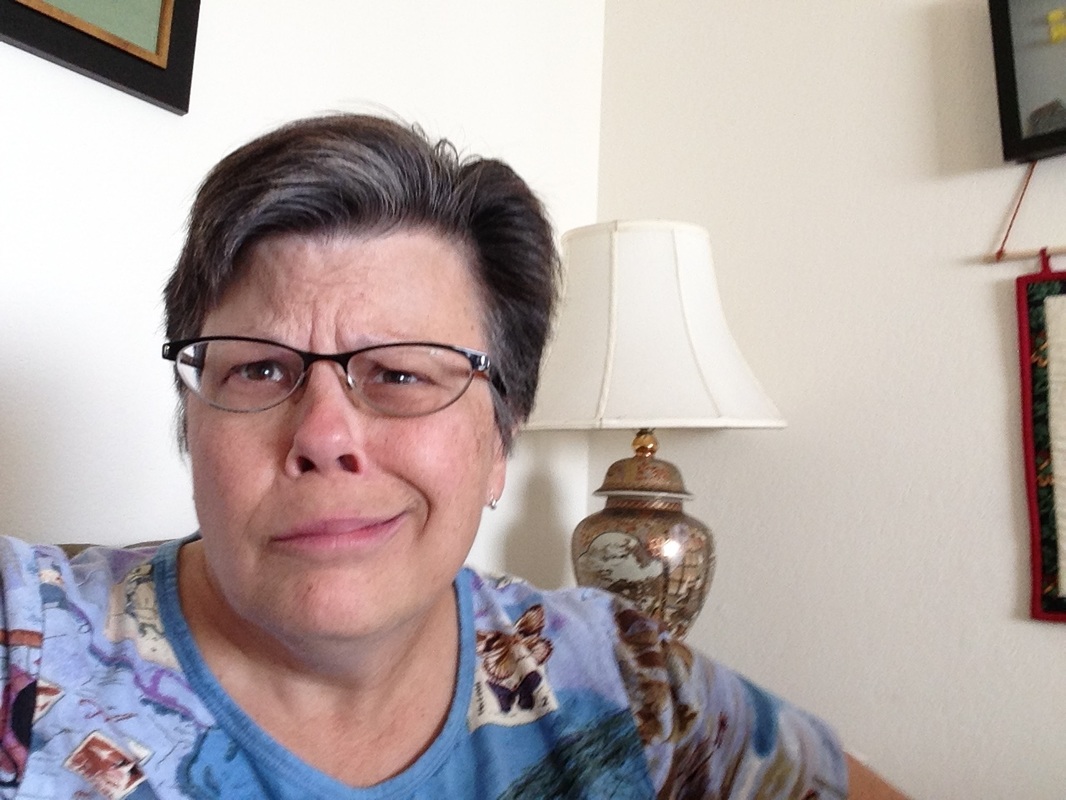
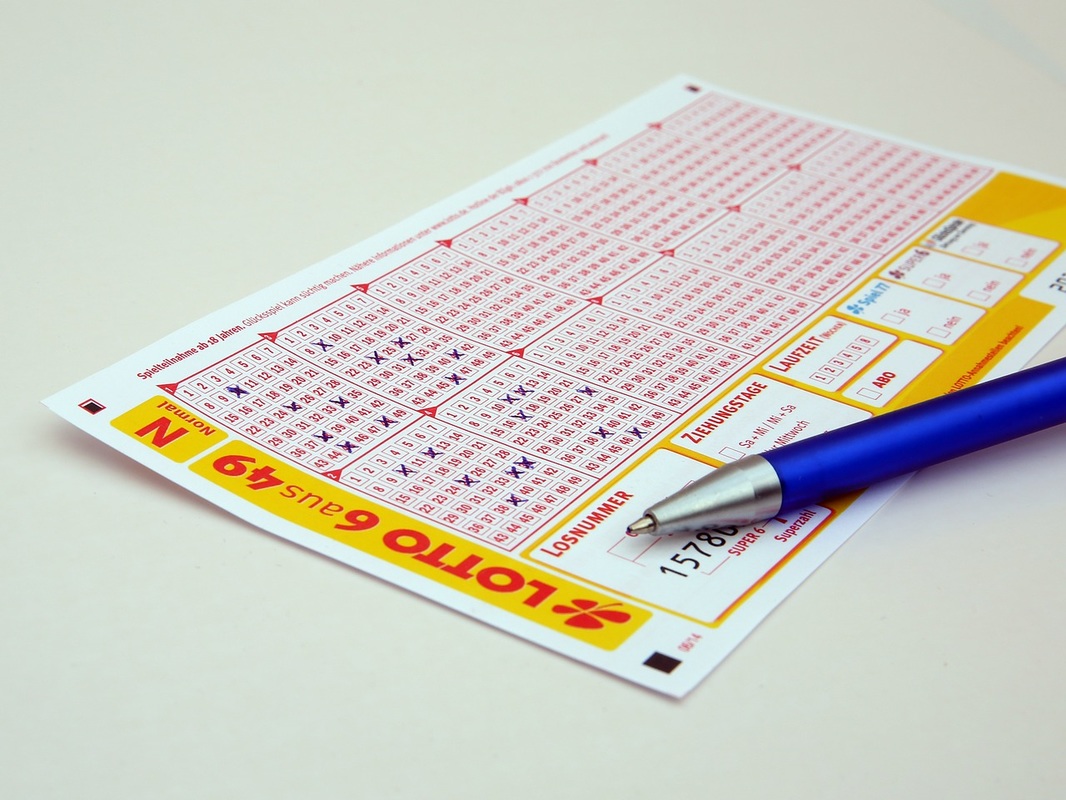
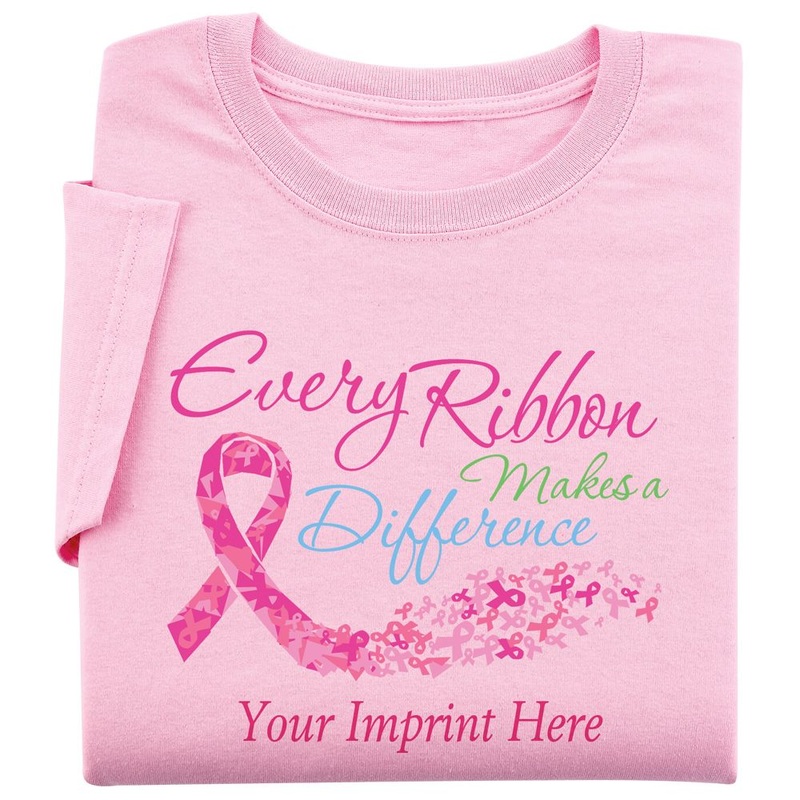
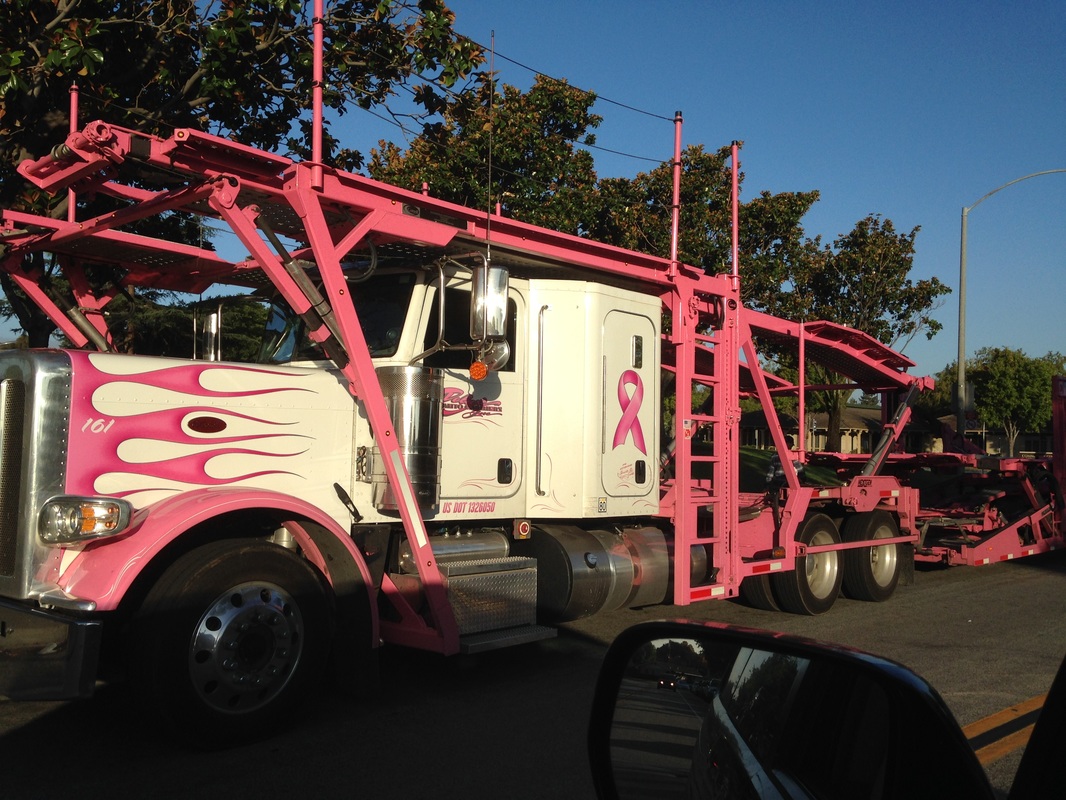
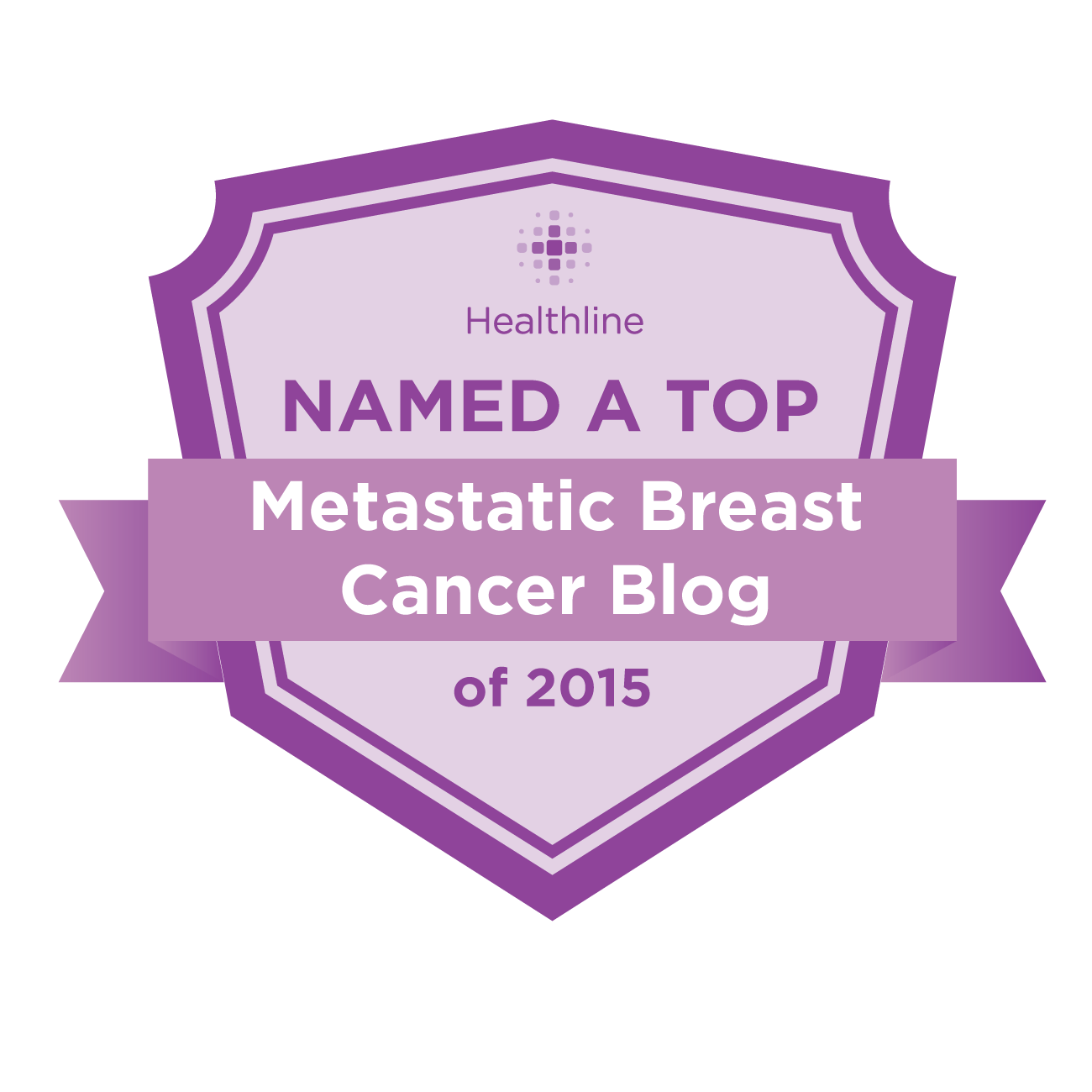
 RSS Feed
RSS Feed
